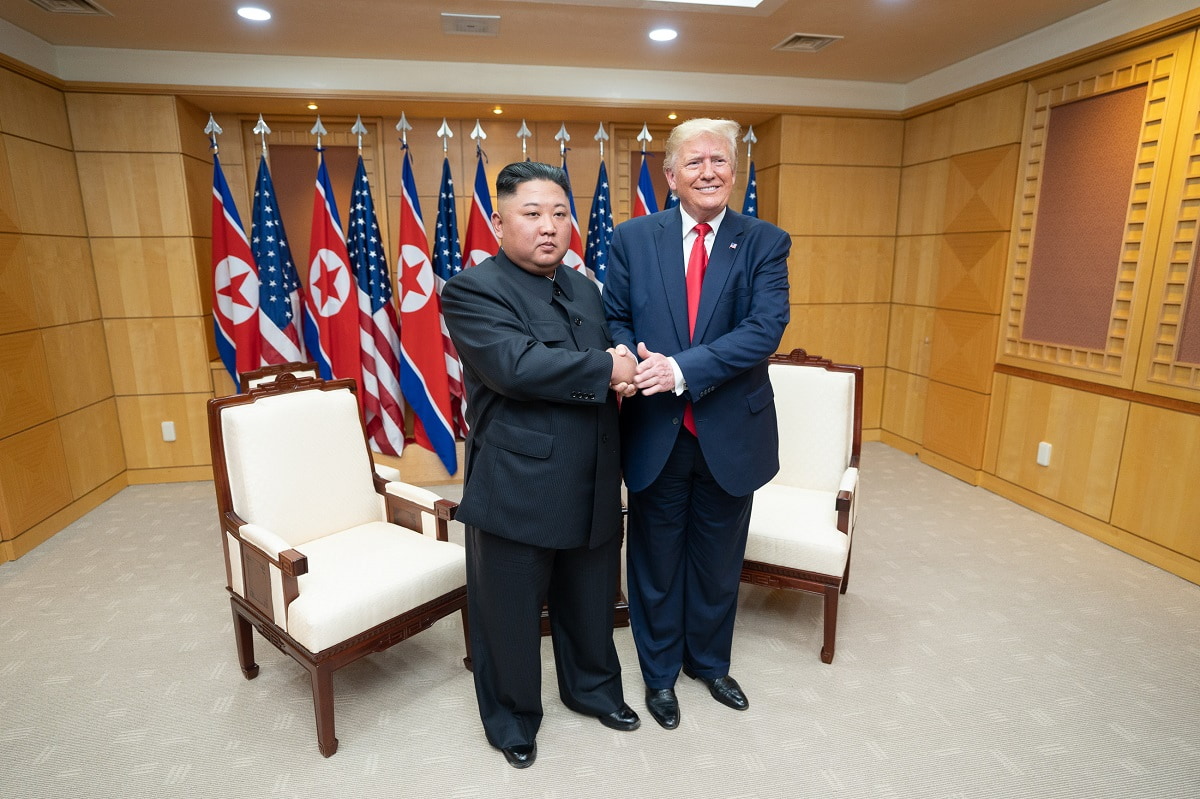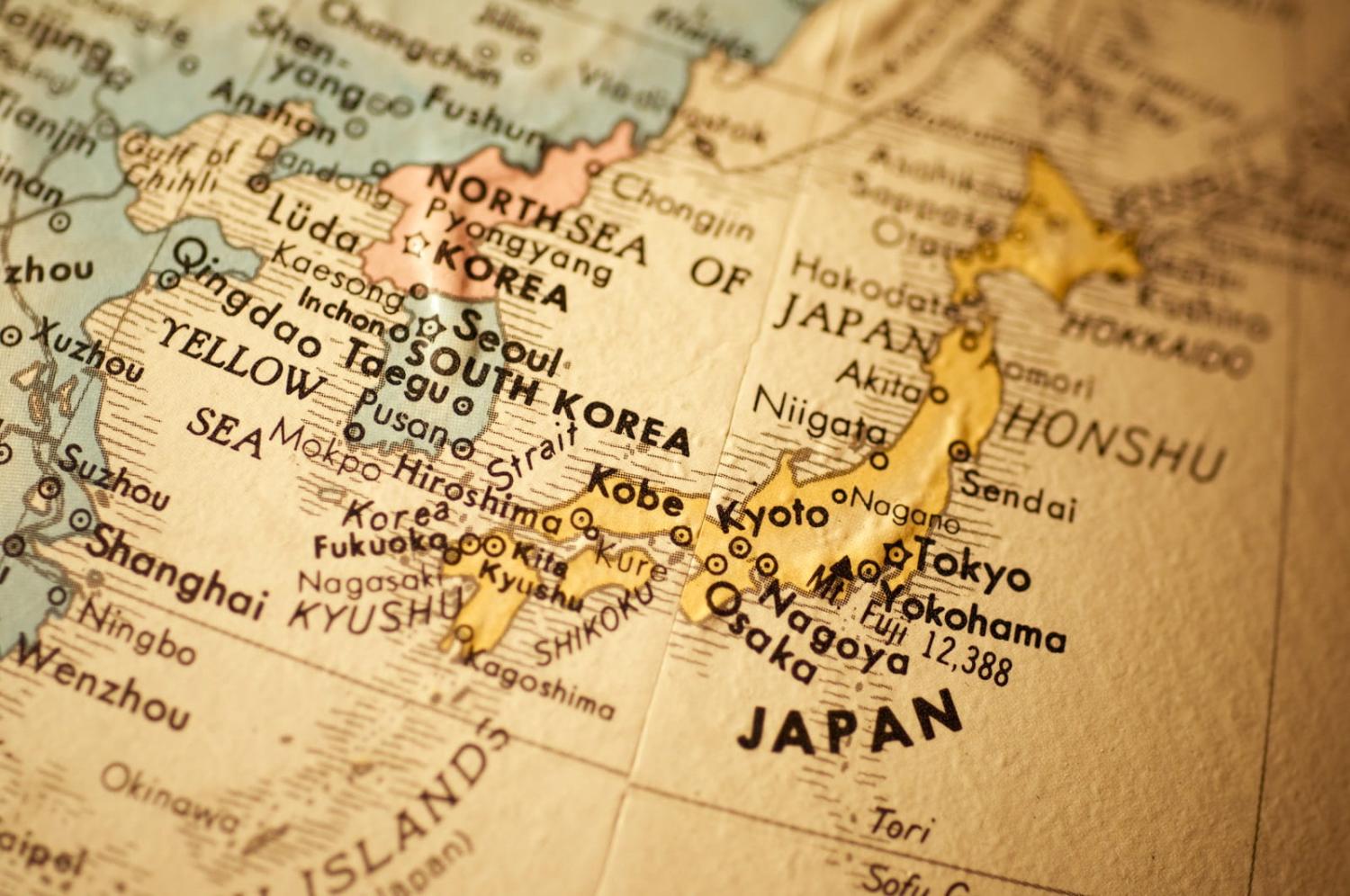North Korea keeps on surprising. While Pyongyang is busy erasing all references to unification with South Korea, it is extending an olive branch to Japan.
It all began early in 2024 when North Korean leader Kim Jong-un sent a rare message of sympathy for a deadly earthquake in central Japan to Japanese Prime Minister Fumio Kishida. Kishida welcomed the message, saying that he felt a “strong need” for the two countries to improve their relations. Kim’s sister Kim Yo-jong responded to Kishida’s remark positively. She went as far as welcoming Kishida to visit Pyongyang as long as Japan did not lay a “stumbling block” – a subtle reference to the issue of past abductions of Japanese nationals by North Korean agents. Kishida is personally supervising high-level discussions with North Korea to make a Kim–Kishida summit a reality.
North Korea’s outreach to Japan after more than four years of silence is causing much speculation about Pyongyang’s true intention and whether such a summit would materialise. Four years ago, I wrote about the prospect of a Japan–North Korea summit between Kim Jong-un and Japan’s former Prime Minister Shinzo Abe on the precipice of the 2020 Tokyo Olympics. At that time, North Korea had already met leaders from the United States, South Korea, China, Russia, Singapore and Vietnam. It was thus natural that Abe would be next on Kim’s list.
However, two factors ended the prospect of a Japan–North Korea summit in its infancy. First, neither country was able to overcome the abduction issue. Abe previously declared the return of the remaining abductees would be the precondition for normalisation and sanctions relief per the 2002 Pyongyang Declaration. After the failed Hanoi summit in February 2019, Abe softened the precondition in an offer of dialogue to Kim, but the North Korean leader was not interested because Kim understood that so long as the United States did not agree to sanctions relief, there was little Japan could provide North Korea. Then the Covid-19 pandemic happened. While North Korea had to close its borders to fight the virus, Japan had to cancel the 2020 Summer Olympics. There were no sparks like the 2018 PyeongChang Winter Olympics that could rekindle a Japan–North Korea dialogue.

North Korea only re-opened earlier this year, finding itself in a much more permissive international environment than in 2019 when Abe extended the olive branch, and with that the negotiation leverage vis-à-vis Japan. The country is no longer isolated, and it is benefiting from trade with Russia and China. Even worse for Japan, North Korea has been making steady progress in its missile programs and successfully scared Tokyo into issuing an evacuation order for northern Japan in April 2023 due to a missile launch. With North Korea having broken its long-range missile test moratorium, there is nothing stopping Pyongyang from firing its missiles over Japan. It is not a coincidence that North Korea is only accepting the offer of dialogue with Japan now when it has significantly increased regional tension with Russian and Chinese backing. Kim Yo-jong inviting Kishida to visit Pyongyang is a sign of North Korean confidence, not of concern about the revitalised US–Japan–South Korea trilateral alliance.
Similar to his predecessor Abe, Kishida suggested that he would be willing to meet Kim without any preconditions. However, Kishida will not be able to leverage North Korea’s isolation and economic hardships to make progress on the abduction issue as Abe tried to do in 2019. North Korea remains adamant that the abduction issue was resolved during the visits by Japan’s former Prime Minister Junichiro Koizumi’s visits in 2002 and 2004. Kim Jong-un also demanded the Japanese government sincerely apologise and pay reparations for the crimes committed against North Korea during the Japanese occupation of the peninsula. In the absence of a green light for sanctions relief from the United States, Japan could not propose an economic deal, including compensations for its colonial era occupation, lucrative enough for North Korea to accept. The easiest step in improving bilateral relations would only be the resumption of a ferry route between Wonsan in North Korea and Niigata in Japan.
However, the huge impact of small steps cannot be discounted. North Korea responding to Kishida’s offer for dialogue is a good sign that the country is not planning to wage a war against South Korea and the trilateral partners. It also demonstrates North Korea wants to maintain its 2018 diplomatic momentum and is preparing for Donald Trump’s possible return to the White House. Facing a stubborn conservative South Korean President Yoon Suk-yeol, North Korea sees Kishida as a potential replacement to the role of peacemaker that former liberal South Korean President Moon Jae-in held in 2018 and 2019.
If Kim can persuade Kishida of his peaceful intention, Kim could bypass South Korea when resuming diplomacy with the United States. If a Kishida–Kim summit does not materialise, Kim has little to lose because he can always count on Chinese and Russian backing. The question may not be about whether a summit will happen, but at what price it will happen.

